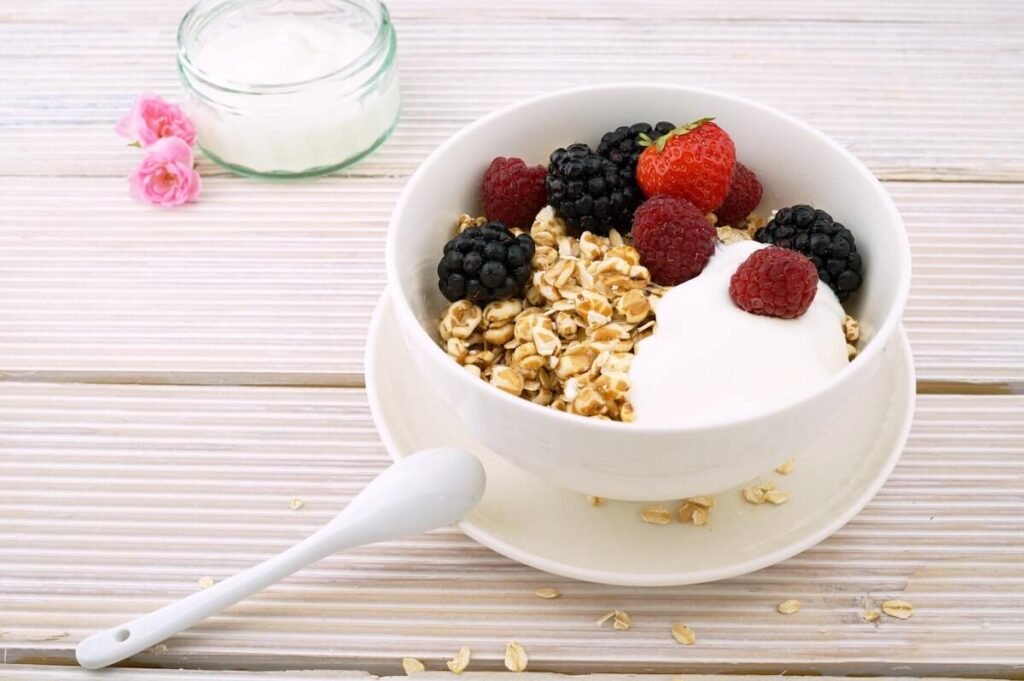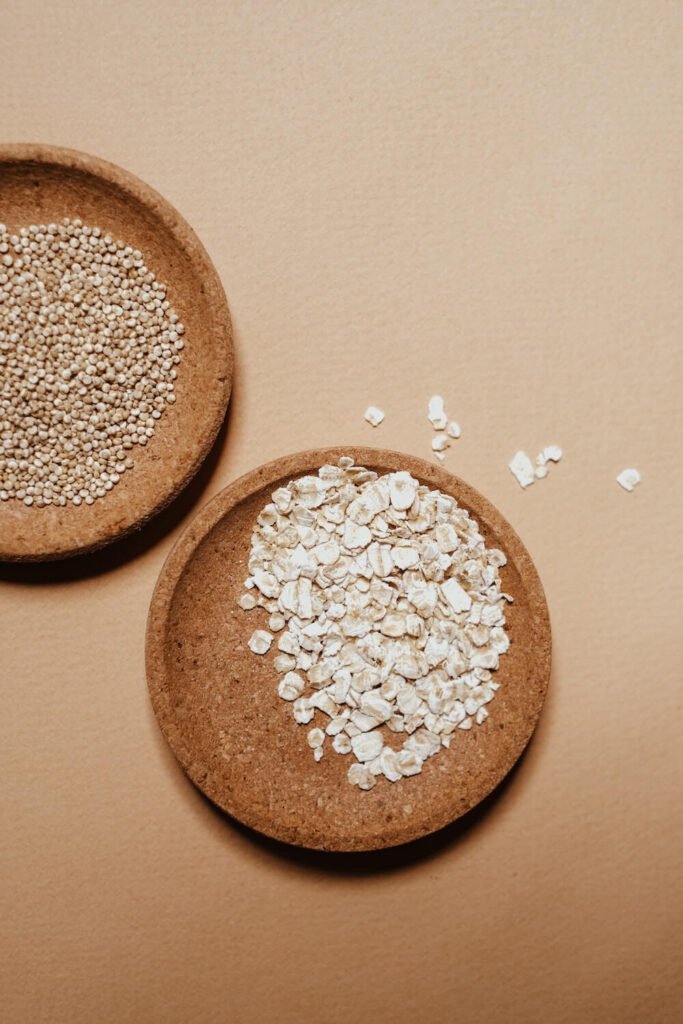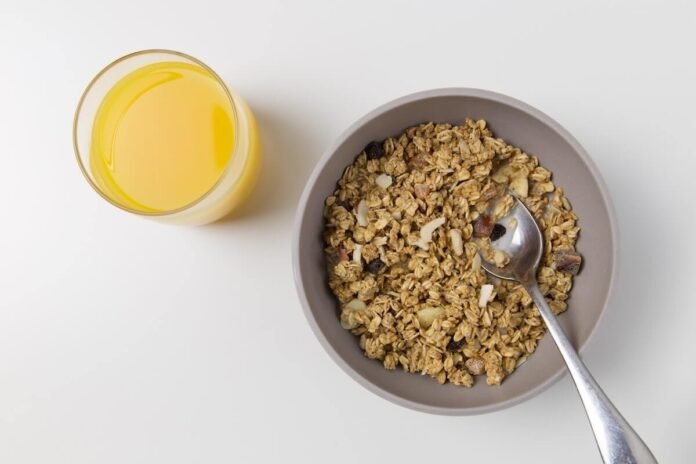Why is fiber important for digestive health?
When it comes to digestive health, fiber plays a crucial role in maintaining regular bowel movements. It acts as a bulking agent, adding bulk to the stool and promoting its smooth passage through the intestines. By doing so, fiber helps prevent constipation and keeps the digestive system functioning optimally. However, not all sources of fiber are created equal, and some individuals may struggle to meet their daily fiber intake through dietary means alone. That’s where fiber supplements come in handy.
Comparing the top fiber supplements for regular bowel movements can be beneficial for those who need an extra boost in their fiber intake. These supplements often contain various types of fibers, such as psyllium husk or methylcellulose, which have been proven effective in promoting regularity. Additionally, different brands may offer different concentrations or forms of these fibers, allowing individuals to find one that best suits their needs and preferences.
Benefits of consuming enough fiber daily
Consuming enough fiber daily offers numerous benefits for overall health and well-being. Natural fiber supplements, such as those derived from fruits, vegetables, grains, and legumes, can play a crucial role in maintaining optimal digestive health. These supplements are rich in dietary fiber which aids in regulating bowel movements and preventing constipation. Moreover, high-fiber supplements can help promote a healthy gut microbiome by providing nourishment to beneficial bacteria.

Understanding different types of fiber supplements
In exploring the benefits of soluble fiber supplements for gut health, it is important to understand the different types available. One common type is psyllium husk, which is derived from the seeds of a plant and is known for its ability to absorb water and promote regular bowel movements. Another popular option is inulin, a prebiotic fiber that acts as food for beneficial gut bacteria, thus supporting digestive health.
When choosing the best fiber supplement for digestive health, it is crucial to consider individual needs and preferences. For those seeking relief from constipation or irregularity, options like methylcellulose or wheat dextrin may be preferred due to their gentle nature. On the other hand, individuals aiming to improve overall gut health and support beneficial bacteria may opt for supplements containing resistant starches or oligosaccharides.
Fiber is essential for a healthy digestive system, aiding in regular bowel movements and maintaining overall gut health. However, many people struggle to consume enough fiber through their diet alone. That’s where fiber supplements come in.
Here are 8 of the best fiber supplements for you to consider for your digestive health.
Metamucil:
Metamucil is a well-known brand that offers a variety of fiber supplements in different forms, including powder, capsules, and fiber bars. Metamucil is a psyllium husk-based fiber supplement. It is effective in promoting regular bowel movements but also helps reduce cholesterol levels and manage blood sugar levels.
Pros:
- Offers a variety of fiber supplement options in different forms.
- Contains psyllium husk, a natural source of fiber.
- May help promote regular bowel movements and improve overall digestive health.
Cons:
- Some individuals may experience bloating or gas as a side effect.
- Requires adequate fluid intake to prevent choking or blockage.
Benefiber:
Benefiber is another popular brand that offers various forms of soluble fiber supplements, including powders and chewable tablets. Benefiber, which offers a range of fiber supplements made from wheat dextrin. These supplements are tasteless and can be easily mixed with water or other beverages. Benefiber products not only promote healthy digestion but also aid in weight management by providing a feeling of fullness.
Pros:
- Provides a tasteless and easily dissolvable fiber supplement.
- Can be added to various foods and beverages without altering their taste.
- Helps promote digestive health and maintain regularity.
Cons:
- May cause mild gastrointestinal discomfort, such as gas or bloating in some individuals.
- Some users may find the texture or taste unpleasant.
FiberChoice
FiberChoice is a brand that specializes in chewable fiber supplements. They offer a range of products that are convenient and easy to consume.
Pros:
- Chewable tablets are convenient and easy to consume.
- Contains inulin, a prebiotic fiber that may promote gut health.
- Available in various flavors.
Cons:
- Contains artificial sweeteners, which may be a concern for some individuals.
- Chewable tablets may not be suitable for people with dental issues or difficulty chewing.
Citrucel
Citrucel is a brand known for its range of fiber supplements containing methylcellulose, which is a type of soluble fiber.
Pros:
- Contains methylcellulose, a type of soluble fiber that helps regulate bowel movements.
- Suitable for individuals with gluten or wheat sensitivities.
- Available in both powder and caplet form.
Cons:
- May take longer to produce noticeable effects compared to other fiber supplements.
- Some individuals may experience gas or bloating as side effects.
Garden of Life
For those looking for a natural fiber supplement option, Garden of Life’s Raw Fiber is an excellent choice. Made from organic ingredients like flaxseeds and chia seeds, this supplement provides a rich blend of both soluble and insoluble fibers to support digestive health and improve overall well-being.
Pros:
- Organic and made from whole food sources.
- Contains a blend of various plant-based ingredients, providing additional nutritional benefits.
- Available in different forms, including powders and capsules.
Cons:
- May have a distinct taste that some users find unappealing.
- Relatively expensive compared to other fiber supplements.
NOW Foods
NOW Foods is a reputable brand that offers a wide range of dietary supplements, including fiber supplements. They provide various options, such as psyllium husk and acacia fiber.
In addition to their selection of fiber supplements, NOW Foods also offers a range of insoluble fiber options. Insoluble fiber is known for its ability to promote regular bowel movements and prevent constipation. Some popular insoluble fiber supplements from NOW Foods include wheat bran, cellulose powder, and rice bran.
Pros:
- Offers a wide range of fiber supplement options, including psyllium husk and acacia fiber.
- Known for quality and purity in their products.
- Available in various forms, such as powders, capsules, and chewable tablets.
Cons:
- Some individuals may experience gastrointestinal discomfort when using certain fiber supplements from NOW Foods.
- The taste or texture of some products may be off-putting for some users.
Renew Life
Renew Life: Renew Life is a brand that focuses on digestive health supplements, including fiber products. They offer different types of fiber supplements, such as organic flaxseed and clear fiber powder. Specializing in digestive care products, Renew Life offers natural fiber supplements derived from fruits, vegetables, and grains that can help support regular bowel movements.
Pros:
- Specializes in digestive health, providing fiber supplements designed for this purpose.
- Offers different types of fiber supplements, such as organic flaxseed and clear fiber powder.
Cons:
- Limited variety compared to some other brands.
- Relatively higher price point compared to generic fiber supplements.
Heather’s Tummy Fiber
Heather’s Tummy Fiber is a brand that specializes in providing dietary fiber supplements specifically for people with digestive disorders, such as irritable bowel syndrome (IBS)
Pros:
- Specifically formulated for individuals with digestive disorders, such as IBS.
- Provides relief from symptoms like bloating and irregular bowel movements.
- May help improve overall gut health.
Cons:
- Limited availability compared to some other brands.
- Higher cost compared to generic fiber supplements.
What benefits does fibre offer to your health?
Fiber provides several advantages for your health. Firstly, it aids in digestion. Fiber adds bulk to your stool and helps you have regular bowel movements, preventing conditions like constipation. It also promotes a healthy gut, as it acts as a prebiotic that feeds the beneficial bacteria in your intestines.
Additionally, fiber can help regulate blood sugar levels. Soluble fiber slows down the absorption of sugar into the bloodstream, preventing spikes in blood sugar and helping to manage diabetes. Moreover, fiber is known to help lower cholesterol levels. It binds to cholesterol in the digestive tract and prevents its absorption, reducing the risk of heart disease. Lastly, a high-fiber diet can contribute to weight management.
Fiber-rich foods are usually low in calories and provide a feeling of fullness, reducing the likelihood of overeating. Overall, incorporating fiber into your diet can have numerous health benefits and contribute to overall well-being.
What distinguishes soluble fiber from insoluble fiber?
Soluble and insoluble fiber are two types of dietary fibers that have distinct characteristics and effects on our health. Soluble fiber dissolves in water and forms a gel-like substance in the digestive tract. It can be found in foods like oats, beans, and fruits.
Soluble fiber has numerous benefits, such as slowing down digestion, helping to regulate blood sugar levels, and reducing cholesterol levels. Insoluble fiber, on the other hand, does not dissolve in water and adds bulk to the stool. It can be found in foods like whole grains, vegetables, and nuts.
Insoluble fiber promotes regularity by preventing constipation and improving bowel movements. While soluble fiber focuses on absorbing water and forming a gel, insoluble fiber concentrates on providing bulk and speeding up the elimination process. Both types of fiber are essential for a healthy digestive system and should be consumed in adequate amounts as part of a balanced diet.

Who should steer clear of fiber supplements?
While fiber supplements can be beneficial for many people, there are certain individuals who should avoid taking them. People with a history of bowel obstructions or gastrointestinal disorders, such as Crohn’s disease or ulcerative colitis, should exercise caution and consult with their doctor before starting fiber supplements.
The added bulk that fiber supplements offer can make these conditions worse. Additionally, individuals who have undergone recent abdominal surgery should avoid fiber supplements, as they can put strain on the healing incisions and delay the recovery process. People with certain allergies or intolerances to specific types of fiber should also stay away from supplements.
For example, those with a sensitivity to psyllium husk should avoid supplements that contain this ingredient. It is always best to consult with a healthcare professional before adding any new dietary supplements to your routine, especially if you have any pre-existing medical conditions or concerns.
What Health Benefits Do Fibre Supplements Offer?
Fiber is an important nutrient for maintaining good health. It aids in digestion, helps regulate blood sugar levels, and promotes healthy bowel movements. However, many people do not consume enough fiber in their diets. This is where fiber supplements can be beneficial. These supplements provide a concentrated dose of fiber, making it easier for individuals to meet their recommended daily intake.
Fiber supplements can help improve digestive health by promoting regular bowel movements and preventing constipation. They also contribute to weight management as they add bulk to the diet and promote a feeling of fullness, reducing overeating. Additionally, fiber supplements can help lower cholesterol levels, as they bind to cholesterol and remove it from the body.
They are also beneficial for individuals with diabetes, as they slow down the absorption of sugar, leading to better blood sugar control. Overall, incorporating fiber supplements into a healthy diet and lifestyle can support various aspects of health and well-being.
What is a fibre supplement made of?
Fiber supplements are a convenient way to increase your daily fiber intake. They usually contain soluble or insoluble fiber sourced from various plant-based ingredients such as psyllium husk, wheat bran, or inulin. Soluble fiber dissolves in water and forms a gel-like substance, helping to soften the stool and promote regular bowel movements. It can also help lower cholesterol levels and regulate blood sugar levels.
On the other hand, insoluble fiber adds bulk to the stool, aiding in digestion and preventing constipation. Fiber supplements may also include probiotics, which are beneficial bacteria that support a healthy gut. These supplements are available in various forms, such as tablets, capsules, powders, or gummies. It is important to read the labels and choose a supplement that suits your needs and preferences.
Remember to start with a low dose and gradually increase it while drinking plenty of water to prevent any digestive discomfort. As always, it is best to consult with a healthcare professional before incorporating any new supplement into your routine.
How frequently can fibre supplements be taken?
Fiber supplements can be taken on a daily basis, but the frequency may vary depending on individual needs and goals. It is generally recommended to start with a low dosage and gradually increase it to allow the body to adjust. It is important to read and follow the instructions on the supplement label or consult with a healthcare professional to determine the appropriate dosage and frequency for specific circumstances.
Some individuals may need to take fiber supplements daily to support regular bowel movements and maintain gastrointestinal health. Others may only need to take them periodically to supplement their diet or during times of digestive discomfort.
As always, it is best to listen to your body and make adjustments as needed. If any negative side effects occur or if there are concerns about the frequency of fiber supplement intake, it is advisable to seek medical advice.
Does fiber help with weight loss?
Fiber is often touted as a weight-loss aid, but does it really help shed those extra pounds? The answer seems to be yes. Several studies have shown that increasing fiber intake can lead to weight loss. Fiber-rich foods are typically low in calories and can help us feel fuller for longer, reducing our overall calorie intake.
Additionally, fiber slows down the digestion of food, which can help regulate blood sugar levels and prevent spikes in insulin. This is particularly important for weight loss, as balanced blood sugar levels can promote fat burning instead of fat storage.
Fiber also supports a healthy gut microbiome, which has been linked to a lower risk of obesity and weight gain. It is important to note that while fiber can aid in weight loss, it is not a magic bullet. It should be combined with other healthy lifestyle choices, such as a balanced diet and regular exercise, for optimal results.
What is the best form of fiber to take?
When it comes to choosing the best form of fiber to take, there are a few factors to consider. One important factor is solubility. Soluble fiber, such as psyllium husk and oat bran, is easily dissolved in water and forms a gel-like substance in the digestive tract.
This type of fiber can help regulate blood sugar levels and lower cholesterol. On the other hand, insoluble fiber, like wheat bran and vegetables, adds bulk to the stool, making it easier to pass through the digestive system and promoting regular bowel movements. Both forms of fiber are essential for a healthy diet, so it is best to incorporate a variety of both in your daily intake.
Additionally, it is important to gradually increase your fiber intake to avoid digestive discomfort. Lastly, remember to drink plenty of water when consuming fiber to help it move through the digestive system easily. Overall, the best form of fiber to take is a combination of soluble and insoluble fiber, obtained from a diverse range of plant-based foods.
Is fiber powder better than fiber pills?
When it comes to getting enough fiber in our diets, many people turn to fiber supplements. However, the choice between fiber powder and fiber pills can be confusing.
Fiber powder, when mixed with water or other liquids, forms a gel-like substance that helps to bulk up stools and promote regular bowel movements. It is often considered more effective than fiber pills because it provides a larger serving of fiber per dose.
Additionally, fiber powder is generally more versatile and can be easily added to smoothies, oatmeal, or baked goods without altering their taste or texture. On the other hand, fiber pills are more convenient for those who are constantly on the go and may not have access to water or a blender.
However, fiber pills often require multiple doses throughout the day to achieve the same amount of fiber as a single serving of fiber powder. Ultimately, the choice between fiber powder and fiber pills depends on personal preferences and lifestyle factors.
Q: What is the importance of fiber for gut health?
A: Fiber plays a crucial role in maintaining gut health. It promotes regular bowel movements, prevents constipation, and helps in the growth of beneficial bacteria in the gut.
Q: What are the best fiber supplements available?
A: Some of the best fiber supplements on the market include psyllium husk, organic fiber, prebiotic fiber, and raw organic fiber.
Q: What are the effects of fiber supplements?
A: Fiber supplements can have various effects on the body, including relieving constipation, promoting regular bowel movements, reducing bloating, and improving overall digestive health.
Q: Are there any side effects of fiber supplements?
A: While fiber supplements are generally safe, some people may experience side effects such as gas, bloating, and mild digestive discomfort. It is important to start with a low dosage and gradually increase to avoid these side effects.
Q: How does dietary fiber affect gut health?
A: Dietary fiber is essential for maintaining gut health. It adds bulk to the stool, prevents constipation, and supports the growth of beneficial bacteria in the gut.
Q: What is psyllium husk and how does it benefit gut health?
A: Psyllium husk is a type of dietary fiber derived from the seeds of the Plantago ovata plant. It is commonly used as a natural laxative and can help relieve constipation and improve overall digestive health.
Q: What are prebiotic fibers and how do they affect gut health?
A: Prebiotic fibers are a type of indigestible fiber that serves as food for beneficial bacteria in the gut. They help promote the growth of these bacteria, which can have positive effects on gut health.
Q: Are there fiber supplements available in gummy form?
A: Yes, there are fiber supplements available in gummy form, such as vitafusion fiber well fit gummies. These gummies provide a convenient and tasty way to supplement your fiber intake.
Q: Is organic fiber better for gut health?
A: Organic fiber is not necessarily better for gut health compared to other forms of fiber. The key is to choose a fiber supplement that suits your individual needs and preferences.
Q: How does fiber supplementation impact overall health?
A: Fiber supplementation can have a positive impact on overall health. It helps maintain gut health, supports healthy digestion, and may lower the risk of certain diseases such as heart disease and diabetes.

